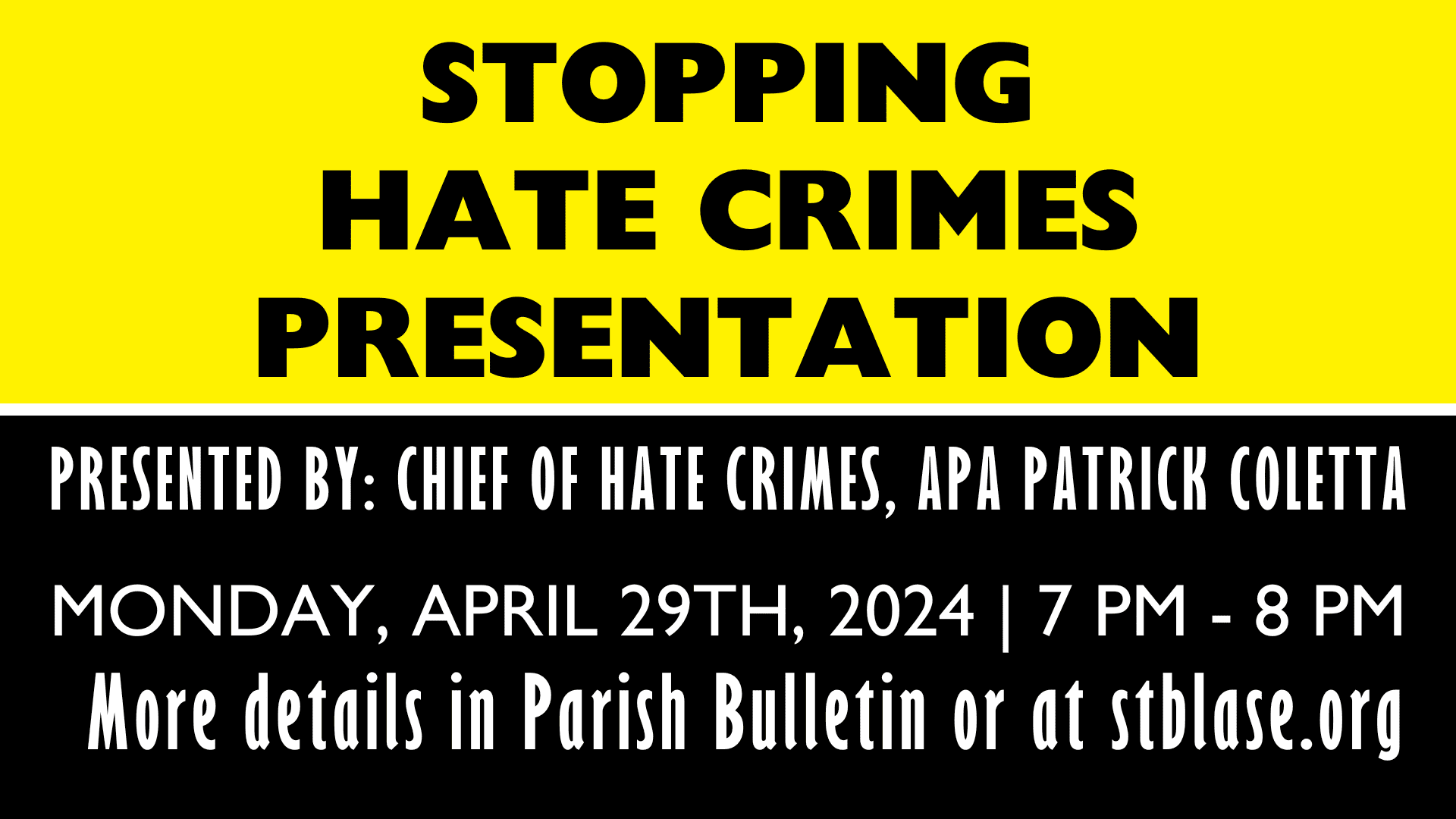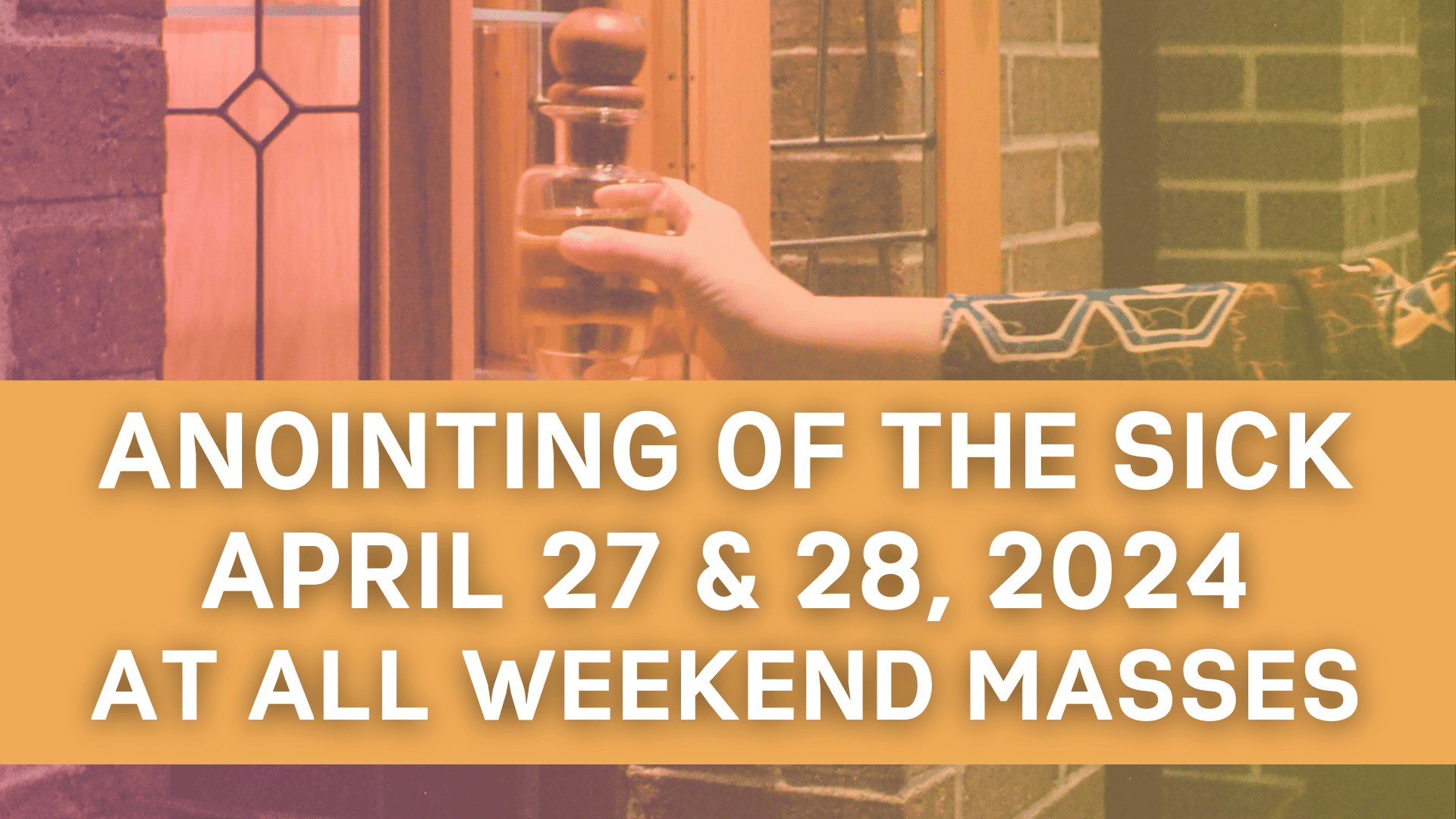No Weekday Masses this Tuesday, April 23rd and Friday, April 26th.
Our Mission Statement
We are a welcoming Catholic community where the love of Jesus Christ is learned and lived, sung and shared.
— Mass Livestream —
The Fourth Sunday of Easter, 11 AM Mass
The Fourth Sunday of Easter, 11 AM Mass
Worship Aid
Bulletin
Past Videos
— Upcoming Events —

Adult Faith Formation: Stopping Hate Crimes Presentation
Join us for a presentation on April 29th discussing what you need to know to protect yourself and stop the hate! Click here for more information…
Monthly Game Night
Game Night is back! Click here for more details…
Spring Clean Up
We are looking for volunteers to help with Spring Clean Up on Saturday, May 11th starting at 8:00am. Click here for more information…
Knights of Columbus’ Spaghetti Dinner
Save the date for the Knights of Columbus’ Spaghetti Dinner on May 11, 2024…
Spring Concert
Join us for a Spring Concert performed by our St. Blase Kindred Youth Choir!
— Announcements —

Anointing of the Sick
On the weekend of April 27th and 28th, we will celebrate the sacrament of the Anointing of the Sick at all the masses.
Prayer Circle
Click here to learn more about our St. Blase Prayer Circle meeting May 13th…
Triduum
Click here for our Triduum 2024 schedule…
Stations of the Cross Youth Volunteers
ATTENTION YOUTH GRADES 4-12! Consider taking part in Stations of the Cross on Wednesday, March 20th at 6:30pm & Good Friday at Noon…
Ash Wednesday
As we enter Lent, let us join together in prayer, Ash Wednesday, February 14th, 2024…


